“The door from the next room suddenly opened with a timid, quiet creak, as if thus announcing the entrance of a very insignificant person…”
In 1846 a 25-year old Dostoyevsky published his second novel. Titled The Double, the novella follows a socially awkward government clerk named Yakov Petrovich Golyadkin – amusingly called “our hero” by the narrator – when a doppelganger enters his life. Unlike Golyadkin, his double is beaming with confidence and charm and is in every other way his exact opposite which eventually leads to trouble for Golyadkin when the doppelganger sets out to ruin him.
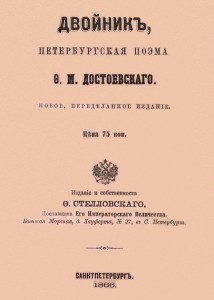 |
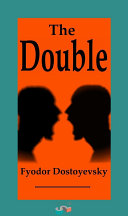 |
The Double has had a surprisingly diverse set of reactions since its creation. Upon its release, most critics set out to annihilate the story, a reactionary doppelganger effect in and of itself in the sense that it ruined the fame and positivity that came with Poor Folk, Dostoyevsky’s debut. In his Writer’s Diary, Dostoyevsky wrote, “”Most decidedly, I did not succeed with that novel; however, its idea was rather lucid, and I have never expressed in my writings anything more serious. Still, as far as form was concerned, I failed utterly.” An unexpected admiration for the novel came from Nabokov, however, who called The Double, “the best thing he ever wrote…it is a perfect work of art.”
Many Dostoyevsky’s fans may not share Nabokov’s appraisal for what is largely considered a minor novel of little importance. But its merit does deserve some recognition. While Dostoyevsky was not yet at the peak of his powers, the reader can already recognize the psychological power brewing beneath Dostoyevsky’s pen that was waiting to be amplified by his Siberian exile. As he would do later on with Crime and Punishment and Notes From the Underground, Dostoyevsky doesn’t merely invite us into the story but forces us to connect our nervous system with those of his subjects. When Golyadkin feels awkward, we feel awkward with him. When Golyadkin thinks he’s triumphed, the reader feels triumphant with him. The ultimate feeling one gets from reading The Double is that they cannot tell whether Golyadkin – and by default, each one of us – belongs in the asylum or society itself. Are we insane, as society assumes? Or is it all in our heads and we’re the ones who are in the right? It is a remarkable accomplishment for a writer with a fresh career, and despite the negative reviews that his contemporaries unleashed time has so far left this remarkable characteristic unchanged and un-weathered.
The Double is also the most Gogolesque of his novels, and it is a real treat for the Dostoyevsky fans to see the Master of Petersburg use his powers to take an influence from another legend and make it his own while ultimately crafting something original. This balance between the comical world of Gogol (a la The Overcoat, in particular) and the psychological insanity of Dostoyevsky’s world was recreated in a Dostoyevsky inspired film most splendidly by Richard Ayoade back in 2013, also titled The Double.
Both a comedy and a tragedy of sorts, The Double – also, coincidentally, Richard Ayoade’s second directed film after his debut coming-of-age film Submarine – removes the Petersburg Poem (the subtitle of The Double) from 19th Century St Petersburg and places it in an unnamed retro-dystopia with cold weather, dark Bauhaus apartment blocks and Macintosh SE-looking computers. Jesse Eisenberg plays Mr. Golyadkin’s equivalent, James Simon, and also stars as his double, Simon James. Mia Wasikowska of Alice and Wonderland fame plays Hannah, the adaptation of Dostoyevsky’s Klara Olsufyevna who is the only one with any sympathy for Mr. Golyadkin (and tragically so, as readers of this novella will discover). And Golyadkin’s boss, Andrei Fillipovich, is metamorphosed into the hilarious Mr. Papadopoulos, played by Wallace Shawn.
The film adapts the original novella into motion picture format exceptionally well compared to other adaptations. Some movies make great but inaccurate loose adaptations from their original inspirations: others try to replicate the original source material with such literalness that the films become boring. But The Double accomplishes both: it is a natural and imaginative film with animated acting and fresh cinematography that stays true to the overall gist of Dostoyevsky’s story, especially the tragedy that is Mr. Golyadkin.
That being said, there is one interesting divergence from Dostoyevsky here (SPOILER ALERT).While The Double (the book) ends on a funny note – with Mr. Golyadkin being taken to an asylum after society, manipulated in part by his doppelganger, cheers him on in a surreal and rather emotional moment – it is nevertheless an ending that many would consider a sad ending. It is the type of ending that makes the reader lament Mr. Golyadkin’s fate while simultaneously laughing at it, one of those classic tricks that can force a reader to confront a personal side to them that they might not know existed. The film, however, ends in the reverse: after discovering that the same harm inflicted upon the protagonist is also inflicted onto his double, the former commits suicide in a last-ditch attempt to destroy his doppelganger. Thanks to a canvas obstructing his fall, James Simon survives. While his double is up in an apartment unable to be rescued, Hannah comes out and saves the protagonist, leading to what most people would consider to be a happy ending (though at the same time, both Simon and Golyadkin are taken away in a vehicle of some kind).
Those eager to know more about Dostoyevsky’s comical side will enjoy reading The Double. Preceding Dr Jekyll and Mr Hyde by 40 years – arguably the most beloved doppelganger story penned in English – The Double is a notable classic from that genre. Where Dostoyevsky inspired films are concerned, The Double is well worth the generally positive accolades it has received and stands alongside Vitaly Sumin’s adaptations as one of the more interesting Dostoyevsky inspired films of the 21st century.
***
Want to know more about the films we make? Sign up to learn more about our methods, our projects, the upcoming premieres and grab our FREE e-book (click on the cover below)!

 Follow us through our social media on Twitter, Facebook, Google+, Pinterest, Tumblr, Instagram and Goodreads
Follow us through our social media on Twitter, Facebook, Google+, Pinterest, Tumblr, Instagram and Goodreads
We hope to see you back here soon!-

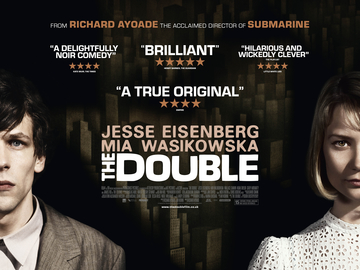
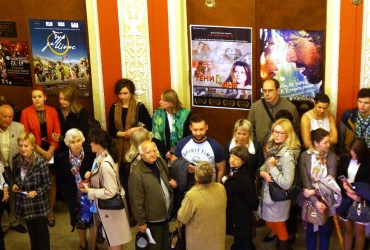



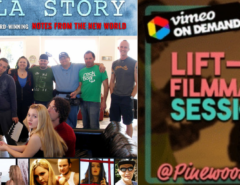
1 Comment